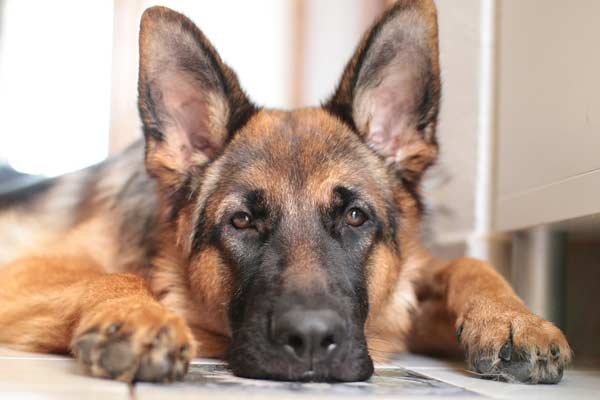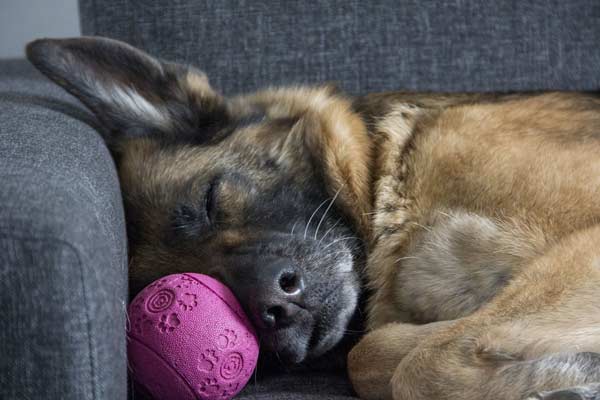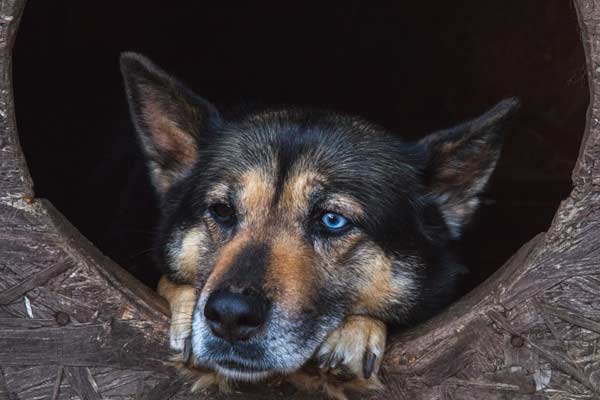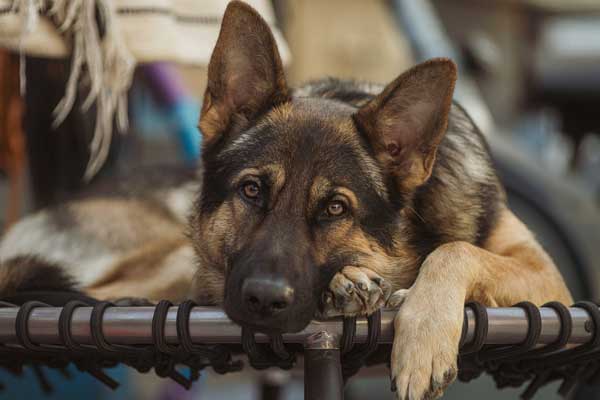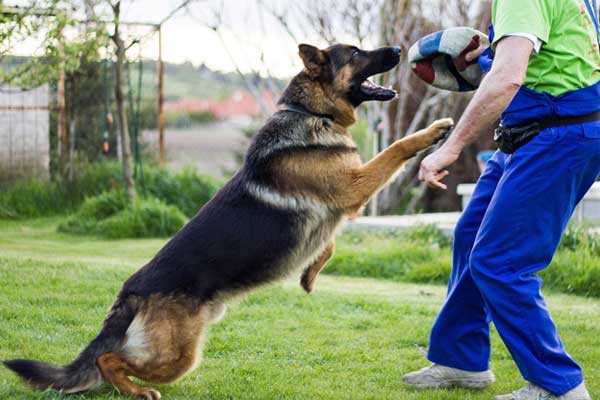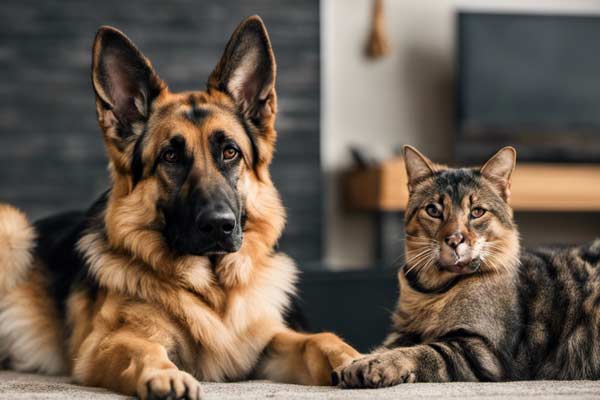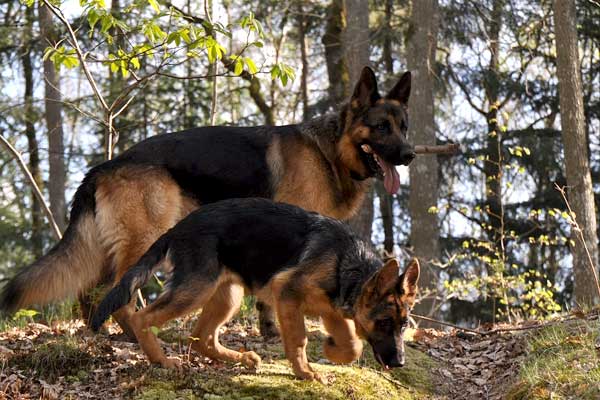Why Do German Shepherds Groan and Whine? How to Stop This Behavior!
Why Do German Shepherds Groan or Whine?
German Shepherds Groan for various reasons, including discomfort or pain, stress, and anxiety, seeking attention, excitement or pleasure, relaxation, medical issues such as arthritis or joint pain or hip dysplasia, being bloated or stretching. In some cases, German Shepherds may groan simply because they are vocal dogs. They may also groan due to growing pains.
10 Reasons why German Shepherds Might be Groaning or Whining
- Discomfort or Pain
- Stress and Anxiety
- seeking attention
- Excitement or Pleasure
- Relaxation
- Medical Issue “Arthritis, Joint Pain, hip dysplasia.”
- Bloated
- Stretching
- Vocal Dog
- growing pain
Discomfort or Pain
A German Shepherd’s Groan can signify your pup is experiencing physical distress or pain. This type of vocalization often occurs shortly after an accident or illness, letting you know something is wrong with your pup’s health.
Groans can also indicate that your puppy is unwell, stressed, anxious, startled, fearful, or uncomfortable. In any case, it pays to pay close attention and intervene as soon as possible if necessary.
Stress and Anxiety
When a German Shepherd Dog groans, it is often indicative of separation anxiety. This long, mournful sound expresses their need for affection and companionship as these loyal animals seek human contact to alleviate loneliness and boredom.
The Groan attempt to gain their owner’s attention in hopes that they will not be left alone for extended periods.
If your German Shepherd Dog is groaning, it may be an indication that they are feeling anxious or neglected and need love and attention.
Get Attention
German Shepherds often look for attention, and one of the ways they do this is by making a unique groaning sound.
This groaning can be heard when our furry friend has been waiting patiently (or not so patiently!) for us to finish our tasks before doing something enjoyable together, such as going out for a walk or playing a game.
The groaning sound is our GSD’s way of letting us know that they are aware time is passing and that it might be nice for us to give them some attention soon!
Excitement or Pleasure
German Shepherds often express their enthusiasm through groaning, a vocalization unique to each pup and varies in intensity.
Groans become particularly apparent when a GSD is having a fascinating time, as they are an additional way for the dog to show joy.
In addition to barking and howling, GSDs may groan to show appreciation for a situation. This behavior often elicits laughter from those watching, as it expresses the GSD’s enthusiasm perfectly!
The sound is usually low-pitched and can be loud or soft depending on the pup’s mood; it may also go on longer than other forms of vocalization.
Relaxation
German Shepherds are well known for their deep, comforting groans when they settle in for a good night’s sleep or try to get cozy while watching TV with their owners.
Not only do these vocalizations provide an emotional connection between the pet and its handler, but they also serve as a way of communicating contentment and relaxation.
In other words, if your German Shepherd happily groans away, it’s a sure sign that they feel calm and content!
Medical Issue “Arthritis, Joint Pain, Hip Dysplasia”
If your German Shepherd is groaning, it may not be a sign of aging – it could be a symptom of arthritis, joint pain, or hip dysplasia.
These medical issues are unfortunately quite common in German Shepherds and often cause their owners to worry about the health and comfort of their beloved pet.
Bloated
If your German Shepherd is grumbling in discomfort, it could be more than just a bellyache – they could be bloated and gassy.
Fret not, as bloat or gastric dilation and volvulus (GDV) may sound complex, but it’s treatable if caught in time! It can happen with large-breed dogs and involves their stomachs becoming twisted, trapping air and causing tremendous pain.
Stretching
Groaning while stretching might be a human trait, but German Shepherds are just as likely to vocalize their displeasure with the act!
It’s funny to witness one of these strong pooches stretch out, let out a soft moan, and then shake it off as if nothing happened.
Vocal Dog
German Shepherds are renowned for expressing themselves through groans and sigh, often more vocally than other breeds.
This is likely due to their natural herding instincts, which drive them to express themselves audibly to lead the pack.
Growing Pain
German Shepherd puppies can suffer from panosteitis as their bones grow faster than their bodies. GSD pups may groan and grumble from these pesky pains from six weeks to twenty-four months.
While there’s no lasting damage, and the issue will eventually disappear, it is still a rough time for both owners and furry friends.
Is Your German Shepherd Groaning a Cause for Alarm?
Groaning is a common way that German Shepherds communicate with one another. Still, if your pup is exhibiting this behavior more than usual, it could indicate that something else is causing the groaning.
How to Stop German Shepherd From Groaning or Whining?
Start by understanding why your German Shepherd is groaning or whining. Anxiety or fear can be the primary triggers, so try to identify what is causing these behaviors.
It could be related to a particular object, person, sound, etc. Please pay close attention to your dog’s behavior and body language to find out what it is that is causing them to groan or whine.
Once you know the trigger, it’s time to look at the situation objectively and devise a plan of action. If your German Shepherd seems fearful, avoid unintentionally encouraging their fearful behavior by not giving in to their requests immediately. Instead, try distracting them with something else, like a toy or treat.
Another effective way to stop your German Shepherd from groaning or whining is to enrich its environment.
Offer your dog something new to investigate and focus on, such as a puzzle feeder or a Kong toy filled with treats. This can help redirect their attention away from things that cause them stress or distress.
Finally, respond selectively to your German Shepherd’s groaning and whining once you have identified the trigger.
Make sure that when you respond, you praise your dog for its good behavior rather than giving in to its bad behavior. Ignoring them can be a helpful tool in learning the difference between acceptable behavior and what isn’t.
Following these tips can help stop your German Shepherd from groaning or whining and have a happier pup in no time!

